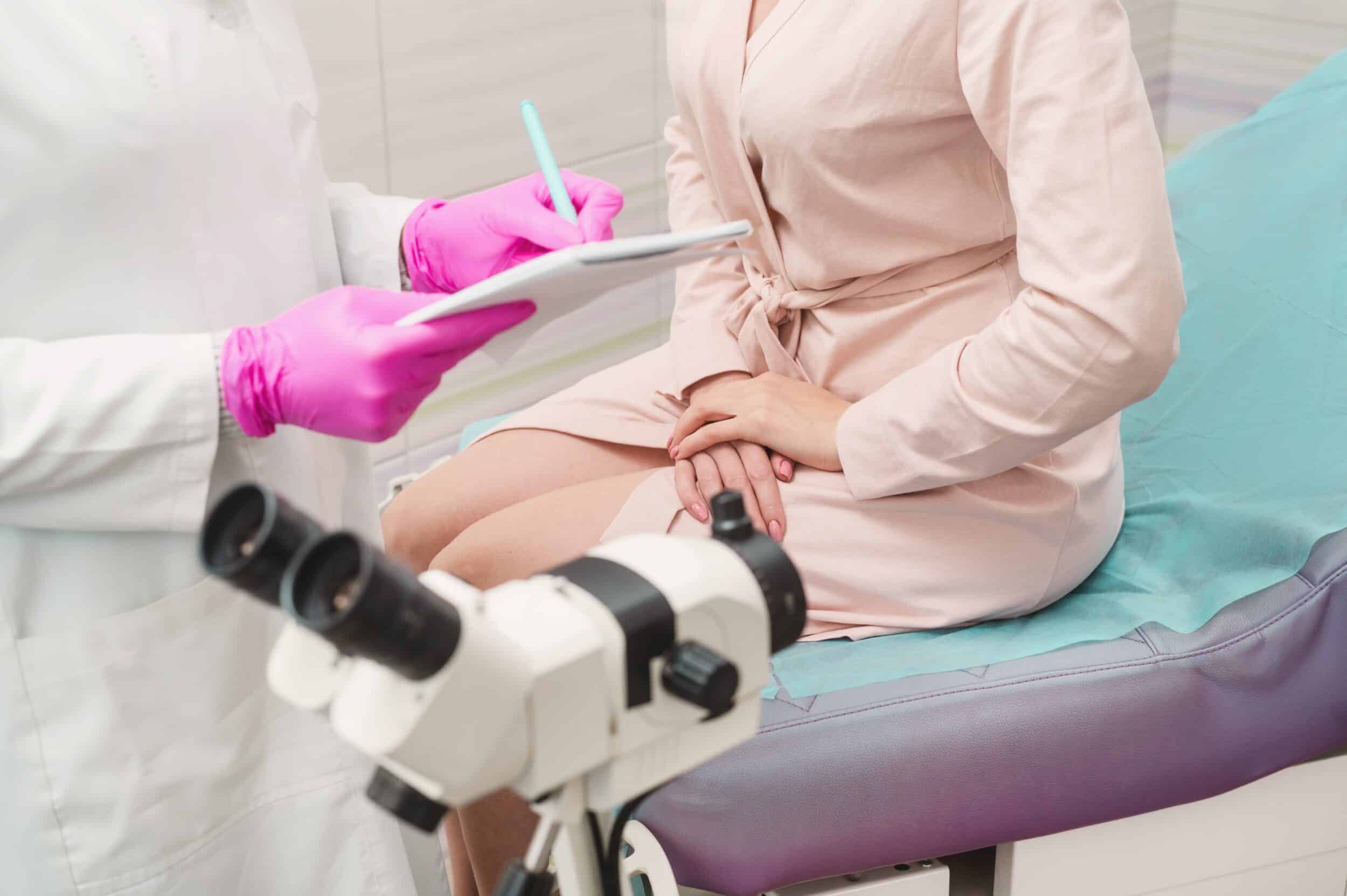Human papillomavirus (HPV) is a very common infection that usually resolves on its own. In some cases, though, it can cause warts and increase the risk of cervical cancer.
At Northwest Women's Center in Houston, TX, our team of experienced providers, including multiple Fellows of the American College of Obstetrics and Gynecology, offers vaccinations against HPV as well as advanced testing and treatment to help women with HPV infections.

What is HPV?
Human papillomavirus is a large family of approximately 100 viruses that are very common and can be spread through sexual contact.
HPV is so common that most sexually active people will become infected at some point. Usually, the body can clear the virus without causing any symptoms. Sometimes, though, HPV can cause genital warts and increase the risk for certain cancers, including cervical cancer. HPV can also cause outbreaks in or around the mouth and in the throat, and some studies have linked the virus to an increased risk of oral cancer.
HPV Symptoms
Chances are, if you have HPV, you have no symptoms. In some cases, though, the infection can lead to genital warts. These fleshy growths develop on the external genitalia. They may be felt when you shower, but can also be easily overlooked.
Does Having Genital Warts Mean I Have HPV?
Yes. While having HPV doesn't always mean you will have genital warts, having genital warts does mean that you have HPV. Genital warts are typically caused by HPV types 6 and 11.
Keep in mind that what feels like a fleshy growth in the vulvar or scrotal area may actually be a skin tag or mole. A qualified healthcare provider should examine any growth in these areas.

How is HPV Diagnosed?
HPV can be diagnosed during a pelvic exam through a Pap test or an HPV test. During the exam, a small number of cervical cells are removed from the surface of the cervix and evaluated under a microscope.
If the test yields an abnormal result, a second exam will be performed using a special magnifier called a colposcope to evaluate the area more closely. Small tissue samples or biopsies will be taken of any abnormal areas and examined in a lab to determine if HPV is present.
A Pap smear does not screen for vaginal or vulvar HPV, nor other areas, like the mouth or throat. In those instances, HPV is usually found as the underlying cause of an existing condition, such as respiratory illness or a type of cancer. The symptoms, then, are related to the primary disease and not to HPV itself.
How is HPV Treated?
Genital warts are fleshy, firm bumps or lumps that form around the genitals or anus. When HPV causes genital warts, the warts may be treated with topical medications or in-office procedures.
Providers can remove warts by excising them, using heat to burn them off (a treatment called loop electrosurgical excision procedure or LEEP), or using liquid nitrogen to freeze them off (cryosurgery). Lasers can also be used to remove warts.
Once warts are removed, they may return in some women. However, patients can take several steps to reduce the frequency and severity of flare-ups.
Can HPV Be Prevented?
HPV may be prevented by practicing safe sex, but it's important to note that it can also be transmitted orally as well as through vaginal and anal sex, which sometimes makes prevention difficult. The best way to prevent HPV is to be vaccinated against infection, ideally during the teenage or preteen years before becoming sexually active.
Why Choose Northwest Women's Center?
Northwest Women's Center is a trusted obstetrics and gynecology practice dedicated to supporting women's health at every stage of life. Conveniently located on Dotson Road in Houston, TX, we offer comprehensive diagnostic and treatment services, including advanced care for HPV.
Our experienced team, led by Fellows of the American College of Obstetrics and Gynecology, provides personalized solutions using minimally invasive procedures, ensuring accurate evaluation and effective management. With a range of women's health services — from well-woman exams and pregnancy support to chronic condition management — we deliver compassionate, patient-focused care.
FAQs
No. While all three conditions can be transmitted through sexual contact, they are unrelated and require different treatments.
While instances of HPV infection are quite common, cases of cancer in the areas affected by HPV are not. For example, there are far fewer cases of cervical cancer than cases of HPV in the cervix.
HPV often goes away spontaneously. It is in cases where the infection persists for an elongated period of time (years) that the risk of abnormal cell formation increases.
Remember, too, that what your doctor may see first are warning signs: precancerous cells that are found during your routine screening for cervical cancer.
Whether or not you have received the HPV vaccine, if you have female genitalia, you need to continue getting your routine health screenings. Regular Pap screenings are advised for all sexually active women.
The HPV vaccine is very effective against two primary types of cancer-causing viruses, but it does not shield against all strains. Furthermore, the efficacy of the HPV vaccine is also optimal in people who are not yet sexually active and have not already been exposed to human papillomavirus.
In many cases, HPV infections clear on their own without treatment. According to a study published by the World Journal of Clinical Oncology, the immune system typically eliminates the virus within one to two years.
However, not all strains behave the same way. Some can persist longer, increasing the risk of complications such as abnormal cervical changes.
Even if symptoms are absent, routine monitoring is essential to catch potential issues early. Your provider may recommend follow-up exams, Pap tests, or HPV testing to ensure the infection resolves.

Low-risk strains may cause genital warts, which are typically managed with topical or procedural treatments. High-risk strains are more concerning because they can lead to precancerous changes in cervical, anal, or throat tissues if not closely monitored.
Specialized care focuses on identifying the specific strain present and creating a management plan tailored to the patient's needs.
The frequency of follow-up appointments depends on your HPV strain, test results, and overall health. For some patients, a yearly Pap test or HPV screening may be sufficient, while others with high-risk strains or abnormal findings may need visits every three to six months.
Regular follow-ups enable specialists to monitor changes in cervical or other tissues and intervene promptly if necessary. Patients with ongoing symptoms, such as genital warts or pelvic pain, may also benefit from more frequent evaluations. Your HPV specialist will develop a personalized care schedule to monitor your condition and protect your long-term health.
Maintaining a strong immune system is key to helping the body clear HPV. Practices that support immune health include:
- Eating a balanced diet
- Exercising regularly
- Reducing stress
- Getting enough sleep
- Avoiding smoking
- Limiting alcohol use
Safe sexual practices, including condom use, may also lower the risk of spreading the virus to others (although HPV can still be transmitted through skin-to-skin contact). Regular screenings and follow-up appointments are critical for monitoring changes.
Most HPV infections do not interfere with fertility or pregnancy outcomes. However, if advanced cervical changes are detected, certain procedures, such as LEEP or cone biopsy, may impact the cervix and future pregnancies. Specialists carefully weigh treatment options to protect reproductive health whenever possible.
For pregnant patients, providers monitor HPV-related conditions closely, treating symptoms like genital warts when necessary. Through personalized care, HPV specialists guide patients with fertility concerns, ensuring they receive safe, effective treatment while protecting their ability to have children.
How more questions? Check out our blog.
Schedule Your Appointment Today
For more information on HPV or to schedule an appointment at Northwest Women's Center, please call us at 281.444.3440.
